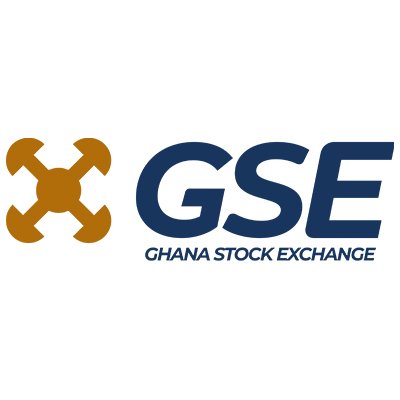What if you could grow your wealth by investing in some of Ghana’s most promising companies? The Ghana Stock Exchange (GSE) offers a vibrant market for investors looking to capitalize on the growth of the Ghanaian economy. Whether you are a seasoned investor or a newcomer, understanding how to trade on the GSE can open up a world of financial opportunities. This guide will walk you through the essential steps to successfully trade on the GSE, from setting up your account to developing effective trading strategies.
Understanding the Ghana Stock Exchange
What is the GSE?
The Ghana Stock Exchange is a platform where shares of publicly listed companies are bought and sold. Established in 1989, it has become a vital part of Ghana's financial landscape, facilitating capital formation for businesses and providing investment opportunities for individuals and institutions alike. With over 37 companies listed across various sectors, including banking, manufacturing, and pharmaceuticals, the GSE is an essential component of the country's economic development.Importance of Trading on the GSE
Investing in stocks can be a powerful way to build wealth over time. The GSE provides access to a range of investment options that allow you to diversify your portfolio and potentially achieve higher returns compared to traditional savings accounts or fixed deposits. Additionally, trading on the GSE can help you participate in the growth of local companies and contribute to the overall economic development of Ghana.Getting Started with Trading
Eligibility to Invest
Before you can start trading on the GSE, you need to meet certain eligibility requirements:- You must be at least 18 years old.
- You should have a valid form of identification (e.g., National ID, passport).
- Both local and foreign investors can participate in trading.
Opening a Trading Account
To trade on the GSE, you must first open a securities account with a licensed brokerage firm. Here’s how:- Choose a Broker: Research and select a licensed broker from the list provided by the Ghana Stock Exchange. Look for brokers that offer services tailored to your investment needs.
- Complete the Application: Fill out an account opening form provided by your chosen broker. You will need to provide personal information, including your identification details and contact information.
- Submit Required Documents: Typically, you will need:
- A valid ID (passport or National ID).
- A recent passport-sized photograph.
- Proof of address (e.g., utility bill).
- Fund Your Account: Once your account is set up, deposit funds into your trading account. The minimum investment amount depends on the price of shares you wish to purchase.
Understanding Brokerage Services
Brokers act as intermediaries between you and the stock exchange. They facilitate buying and selling shares on your behalf and provide valuable insights into market trends and stock performance. Choose a broker that aligns with your investment strategy—whether you prefer comprehensive research support or low-cost trading options.The Trading Process
Trading Hours
Trading on the GSE occurs every working day from 10 AM to 3 PM. Familiarizing yourself with these hours is crucial for timely execution of trades.Types of Orders
When placing trades, you can use different types of orders:- Market Orders: Buy or sell shares at the current market price.
- Limit Orders: Set a specific price at which you want to buy or sell shares.
Monitoring Your Investments
Once you've made your investments, it's essential to monitor their performance regularly. Use tools provided by your broker to track stock prices, market news, and financial reports that may impact your investments.Regulations and Compliance
Regulatory Framework
The Securities Industry Act regulates trading activities in Ghana, ensuring that all market participants adhere to established standards. The Securities and Exchange Commission (SEC) oversees compliance within this framework, protecting investors' interests.Tax Considerations
Investors should be aware of tax implications related to stock trading:- Capital Gains Tax: Tax applied on profits made from selling shares.
- Withholding Tax: Applied on dividends received from investments.
Strategies for Successful Trading
Investment Strategies
Developing an effective investment strategy is crucial for success in stock trading:- Long-term Investing: Focus on buying stocks with strong fundamentals and holding them for several years.
- Short-term Trading: Engage in buying and selling stocks frequently based on market trends.
Risk Management Techniques
Investing inherently involves risks; hence, implementing risk management strategies is essential:- Diversification: Spread investments across different sectors to reduce risk exposure.
- Stop-Loss Orders: Set predetermined exit points to limit potential losses.
Resources for Investors
Educational Resources
Continuous learning is vital for successful investing:- Read books about stock trading fundamentals.
- Attend seminars or workshops hosted by financial institutions or brokers.
Online Tools and Platforms
Leverage technology for better investment decisions:- Use stock analysis tools provided by brokers.
- Follow financial news platforms that cover updates relevant to the GSE.
Networking Opportunities
Engaging with other investors can provide valuable insights:- Join investment clubs or online forums focused on Ghanaian stocks.
- Participate in discussions about market trends and investment strategies.
Conclusion
Trading on the Ghana Stock Exchange offers an exciting opportunity to grow your wealth while contributing to national economic growth. By understanding how to navigate this dynamic market—from opening an account to developing effective trading strategies—you can position yourself for success as an investor. Remember that informed decision-making is key; stay educated about market trends and continuously refine your strategies as you gain experience.
Tags:
Investment


